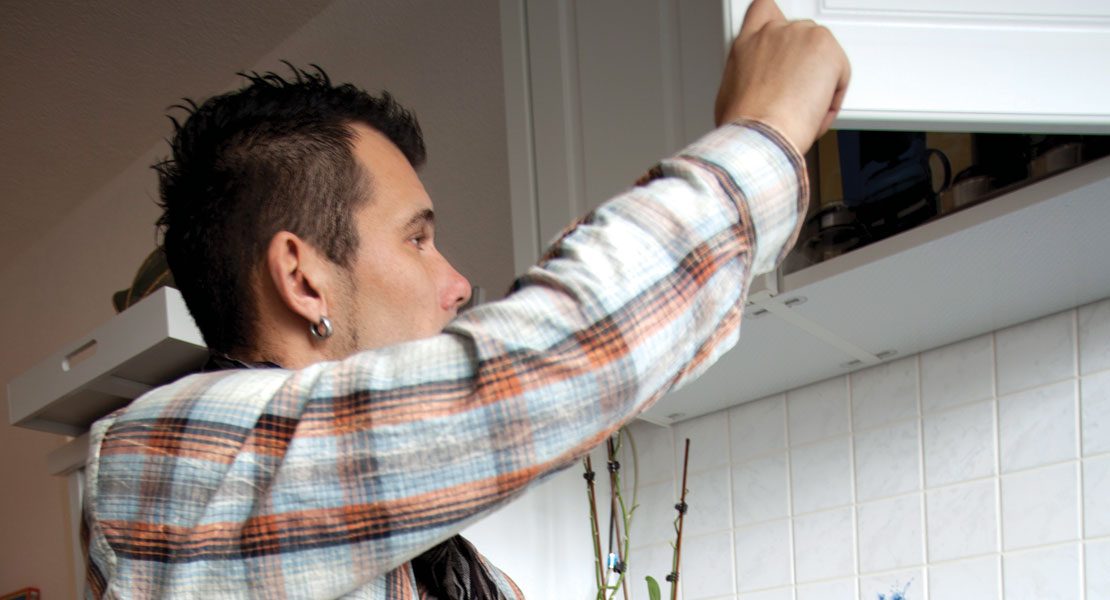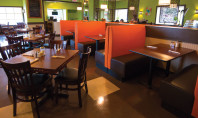Lehigh Valley Center for Independent Living

Empowering persons with disabilities to choose independence.
By Nancy Moffett
Imagine you’re a young adult with a disability. You have graduated from high school or gone as far in your schooling as you can. What’s next… a job?… a place to live on your own?… what are your goals as you transition into adulthood? These are important questions that all young adults face, but for those with disabilities the answers may not be easily found.
The Lehigh Valley Center for Independent Living (LVCIL) is a valuable resource for these young people as well as for people of any age with a disability. Their mission is to provide information, services and support so that people with disabilities can “live in dignity within an environment that is free from barriers of all types – physical, psychological, social and economic.”
LVCIL is a non-profit organization that was founded in 1990 through the efforts of Carl Odhner and Operation Overcome. As one of LVCIL’s founding members, Odhner was an advocate for people with disabilities. He championed the independent living philosophy and believed that a strong, vital community is one that welcomes all people. Operation Overcome, a group comprised of persons with disabilities and their supporters, worked to promote accessibility and awareness in the Lehigh Valley. From these efforts, LVCIL was born.
Our focus is a holistic, person-centered process that empowers people [with disabilities] to find what they need and want to succeed in life.
LVCIL is one of 18 Centers for Independent Living in Pennsylvania and is governed, managed and staffed by a majority of persons with disabilities. “This is called consumer control,” explains Executive Director Amy Beck. “Because we are people with disabilities, we never forget the rights and needs of those we serve.” Indeed, 51 percent of the staff at LVCIL is made up of people with disabilities, while several serve on the board of directors. “Young adults learn from us,” Beck explains, “as role models with disabilities.”
According to Beck, LVCIL’s four core services are Information and Referral, Peer Support, Advocacy and Independent Living Skills. Specialized services include housing search and placement, veterans programs, 24-hour sign language, youth transition, employment, community education and more. “Our mission is to empower people with disabilities to reach their fullest potential, to foster community awareness of the assets of citizens with disabilities and to serve as a forum for cross-disability advocacy and peer support,” she explains. Funding from the federal and state governments forms the basis for LVCIL’s budget with the remainder coming from grants, the United Way and
fundraising efforts.
One of the most innovative programs LVCIL offers is School to Life (S2L). “When autumn comes for kids who have finished school, they feel like they’re falling off a cliff,” Beck explains. S2L helps them make the transition to the real world. The program focuses on independent living skills via a year-long workshop series and a six-week summer program for young adults ages 14-25. S2L is led by officers who conduct meetings, fundraisers and group activities. Participants receive individual support to set and meet life goals. Members over age 21 who have made the transition to employment and independence act as mentors. Parents are involved via quarterly meetings and support.
Along with S2L, the Career Path program (in partnership with the Office of Vocational Rehabilitation [OVR]) helps young adults find jobs that match their interests and skills. “We take them into the community to do volunteer work and connect them with employers,” Beck explains. “This program opens doors and shows that people with disabilities have useful skills.” There are currently 100 consumers enrolled in the program. When a consumer finds a job, a vocational coach accompanies them 100 percent of the time in the beginning, gradually reducing their hours over the next 90 days until both the employee and the employer are comfortable with the position. Beck notes that LVCIL is the only one in the state with an employment program. It has been recognized on the national level, and the Independent Living Research Utilization recently did a webinar on the program to share its tenets with other independent living centers. “Our focus is a holistic, person-centered process that empowers people to find what they need and want to succeed in life,” Beck continues.
Two young people who have completed these programs are Tim and Beth. Tim has an intellectual disability and suffers from anxiety. Before he came to LVCIL’s Career Path program, he spent most of his days at home, too intimidated to leave the house, let alone get a job. Tim’s family helped him apply to OVR, which referred him to Career Path. Tim learned to trust LVCIL staff and to open up about his employment and life goals. He obtained his desired job and has been successfully employed with a major hospitality chain for more than two years. He now has enough income to explore options for living on his own.
Beth, who has an intellectual and several physical disabilities, had a very difficult time finding a job she would enjoy. LVCIL staff worked with her for more than a year to find an appropriate match. She is now working as a part-time customer service representative, a job she loves and in which she is thriving.
The LVCIL’s veterans program helps vets and their families (in conjunction with the VA) achieve stability in permanent housing. Counseling and financial support may be part of the services available to families whose income falls below 50 percent of the area median. There must also be a person with a disability in the family to qualify for the program. A staffer who is a veteran acts as a mentor for people using this service.
These are just some of the many services LVCIL provides to Lehigh Valley residents with disabilities. For a comprehensive list, see lvcil.org.
Executive Director Amy Beck joined LVCIL’s board of directors in 1994 and became its leader in 1999. “This work gets into your blood,” she says. “I am fortunate in my team of employees, which has grown from eight to 35 as we have expanded. They bring it every day.”
LVCIL will be moving to 713 North 13th Street in Allentown next spring, providing three times the space it now has on Allentown Drive. A new logo that better expresses LVCIL’s mission was introduced in October. As Beck says, “There is still so much work to be done,” as LVCIL continues moving forward as a resource and advocate for people with disabilities throughout the Lehigh Valley.






















